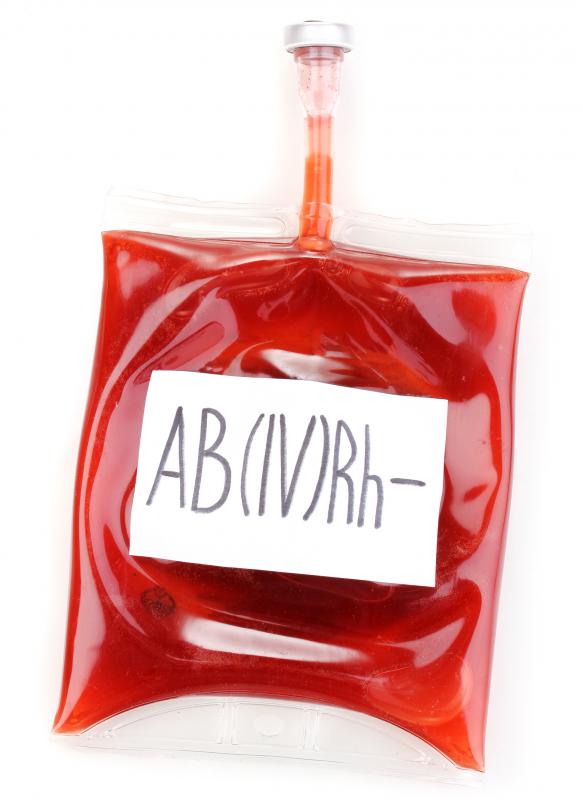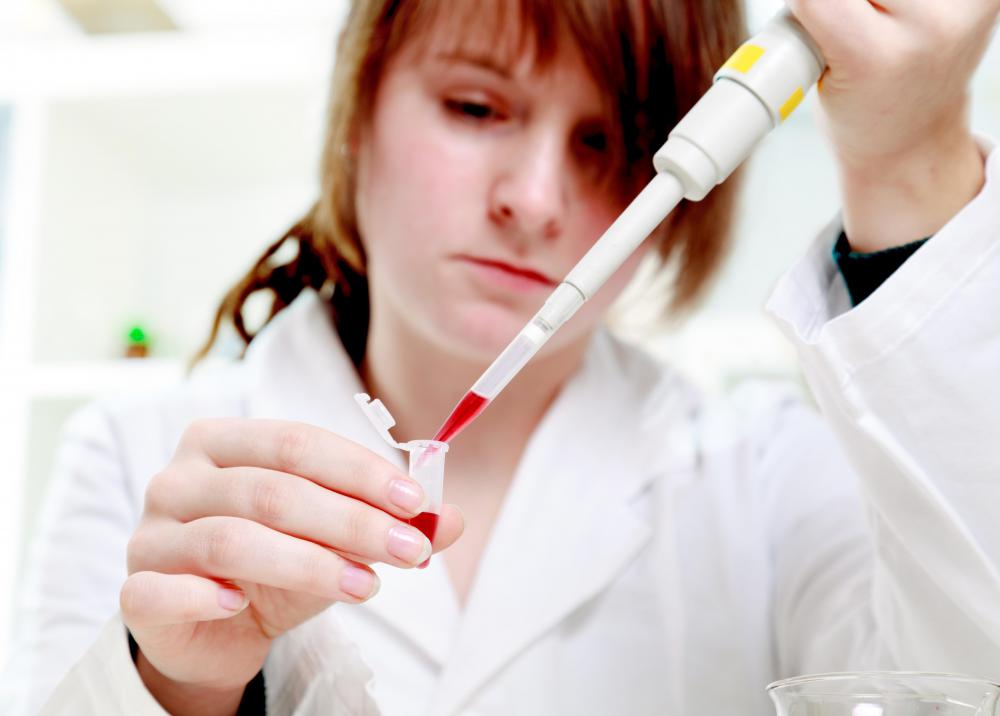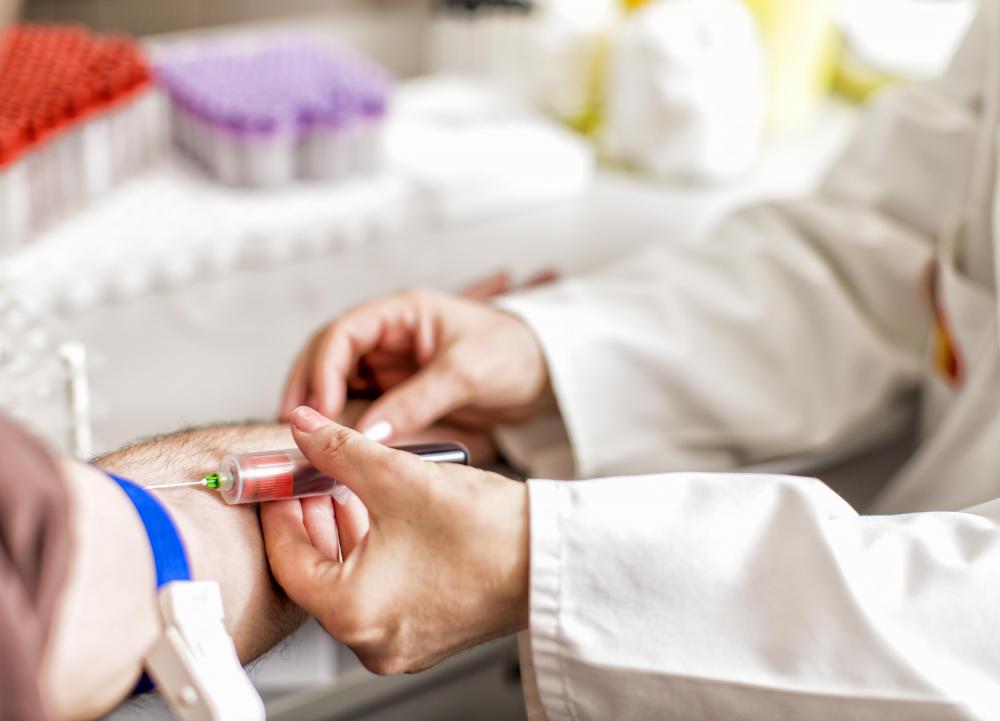At TheHealthBoard, we're committed to delivering accurate, trustworthy information. Our expert-authored content is rigorously fact-checked and sourced from credible authorities. Discover how we uphold the highest standards in providing you with reliable knowledge.
What is Blood Serology?
Blood serology is an aspect of the biological, medical, and forensic sciences that involves the study of blood serum, the liquid component of blood that does not contain blood cells or clotting factors. Blood serum contains many antibodies that can be analyzed for scientific, diagnostic, or forensic purposes. Antibodies have highly specific structures and are produced by the body to confront specific threats, so an analysis of the antibodies contained in a serum sample can often return valuable information about any infections or illnesses that an individual may have. Some aspects of blood serum are unique to each person, so serum analysis can also be used to connect an individual to a crime scene if forensic evidence is available. The term "blood serology" can be used to describe either the study of blood serum or the practice of analyzing serum for a particular purpose.
A blood serology test is generally quite simple and painless. A health professional draws a small amount of blood from a vein and collects it into a tube or vial. The blood is allowed to clot in order to remove clotting factors and the liquid serum is separated from the blood cells. The serum is then analyzed for antibody content. The presence of significant amounts of a given antibody may indicate the presence of an infection or disorder.

There are many other pieces of information that a blood serology test can be used to reveal. Blood serology can, for example, be used to determine an individual's blood type. It can also be used to diagnose several autoimmune conditions. The presence of antibodies that target an individual's proteins or foreign proteins may indicate an autoimmune disorder or a rejected blood transfusion. Immune deficiency problems in which an individual lacks certain necessary antibodies can also be detected through blood serology tests.

Blood serology is commonly used in forensic science, as a great deal of information can be gathered from a relatively small sample of blood. It is necessary to ensure that the blood sample is not contaminated in order to avoid inaccurate results. A forensic scientist can determine whether or not a blood sample came from a human, determine the gender of the individual who lost the blood, and prepare an antibody and protein profile of the blood. This profile can be checked against suspects or victims and may be used to link a suspect or victim to a specific crime scene or weapon.
AS FEATURED ON:
AS FEATURED ON:















Discussion Comments
I found out awhile ago that there are actually forensic scientists that completely specialize in blood serology. In fact, they're called forensic serologists. Their whole job is performing and analyzing blood work tests on blood found at crime scenes and from suspects.
From what I understand, most serologists have a bachelor's degree in a scientific discipline and work at forensic labs. This would probably be a really good job for someone who is interested in medical stuff, but doesn't want to deal with live patients.
@SZapper - You can get useful information about a person by doing lab tests on all the different parts of the blood: the serum, the red blood cells, and the white blood cells. All the parts will tell you different things about a patients (or suspects) overall health, which is useful information for a forensic detective to know.
I actually didn't know that you could tell if a blood transfusion had been rejected by looking at the blood serum though. Very interesting.
I never realized you could get so much information in medical blood tests just from the blood serum. I feel like we usually hear more about blood tests that do a blood cell count to check for the presence of infection.
This sounds really convenient for forensics though, because you don't need very much blood to do the tests. Also, I'm sure the antibodies in blood serum could tell investigators a lot about the individual. I know even after people get better, they still have antibodies from an illness in their system. So if someone has had a rare disease, an antibody in their blood and in blood at the crime scene could link them to the crime.
Post your comments